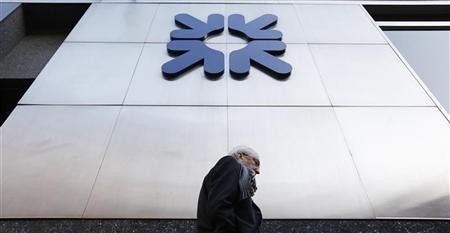Mis-Selling Derivatives: RBS Makes No Provision for Consequential Losses

The Royal Bank of Scotland has revealed that it has not set aside any money for consequential losses for victims of mis-sold interest rate hedging products after claiming it cannot reliably measure its liability.
According to the bank's third quarter results statement, RBS said customers may be entitled to compensation for any consequential losses they may have suffered, following the mis-selling of interest rate swap agreements (IRSAs).
However, the bank then added that it "is not able to measure reliably any liability it may have and has accordingly not made any provision."
"[RBS] is now making steady progress after a challenging start with its review of sales of interest rate hedging products and expects to complete this and provide basic redress to all customers who are entitled to it by the end of May 2014," said RBS in a statement.
Overall, RBS has not added anything extra to its redress or administrative pot to deal with mis-sold derivatives.
RBS was hit by a £700m (€827m, $1.1bn) charge in the fourth quarter last year for redress in relation to IRSAs sold to small and medium-sized businesses; £575m was earmarked for client redress and £125m for administrative expenses.
The bank increased this amount by £50m in the first quarter this year but this was only for administrative costs, not compensation.
Split Payments
IRSAs are contracts between a bank and its customer where typically one side pays a floating, or variable, rate of interest and receives a fixed rate of interest payments in exchange. They are used to hedge against extreme movements in market interest rates over a given period.
Companies that have seen the value of these products move against them as rates fell during the recession now owe banks crippling sums in interest payments each year.
Consequential loss claims, which involve the party providing evidence that it incurred losses as a result of the IRSA, are filed separately to the Financial Conduct Authority's (FCA) review scheme.
This means that while a bank can make an initial redress offer - a product tear-up or switch and/or compensation - if a company is claiming for consequential losses on top of this, then it would have to wait until after the banks have assessed the application for damages.
Previously under the FCA interest rate hedging product review, no redress payments could be made from banks to customers until the entire process of determining redress was completed.
This prevents a party being able to make claims over and over again and costing firms multiple sets of bills from fresh reviews.
However, on 23 October, RBS revealed that it will pay all customers, which were mis-sold IRSAs, redress payments before consequential losses are determined.
Following in the footsteps of HSBC, RBS said it has agreed with the FCA to "split redress payments for all customers mis-sold swaps (IRSA)."
"Customers will receive redress monies without having to wait for the assessment of any additional consequential loss claims which are outside the allowance for such claims included in the 8% interest on redress due," said RBS in a its results statement.
© Copyright IBTimes 2025. All rights reserved.






















